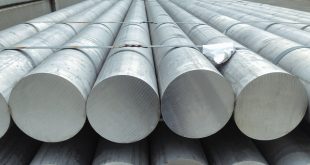Aircraft leasing has become an essential strategy for airlines striving to maintain financial stability while expanding their operations. This approach allows airlines to operate newer, more efficient fleets without the massive capital investment required for purchasing aircraft outright.
The following post will shed light on how aircraft leasing serves as a cost-effective solution, enabling airlines to remain competitive in a rapidly changing industry.
Financial Flexibility
Leasing aircraft offers significant financial benefits by reducing the need for large upfront investments. Purchasing an aircraft requires a substantial capital outlay, which can tie up resources that airlines might need for other critical areas, such as improving service quality or expanding route networks. By opting for leasing, airlines can preserve their cash flow and allocate funds more effectively across their operations. Leasing also provides airlines with predictable costs over the lease term, which is crucial for budgeting and financial planning. This predictability allows airlines to manage their expenses better, avoiding the financial strain that can come with unexpected maintenance or depreciation costs associated with owned aircraft. Additionally, airlines can benefit from tax advantages, as lease payments can often be deducted as operating expenses, further enhancing the financial appeal of leasing.
Fleet Adaptability
Aircraft leasing offers airlines the flexibility to adjust their fleet size in response to changing market demands. In the aviation industry, passenger demand can fluctuate due to seasonal variations, economic conditions, or unexpected global events. Leasing enables airlines to quickly scale their fleet up or down, depending on the current market conditions. For example, during peak travel seasons, airlines can lease additional aircraft to meet increased demand, and return them when the demand subsides. This adaptability is not only cost-effective but also reduces the risk associated with long-term commitments. Owning aircraft ties up capital and requires airlines to commit to a fixed fleet size, which may not be ideal in a volatile market. Leasing allows airlines to remain agile and responsive to market changes, ensuring they can optimize their operations without being burdened by excess capacity.
Access to Modern Aircraft
Leasing enables airlines to access the latest, most fuel-efficient aircraft without the need for significant capital investment. Modern aircraft are designed to be more environmentally friendly and cost-effective to operate, with advanced technology that reduces fuel consumption and lowers maintenance costs. By leasing, airlines can maintain a young and technologically advanced fleet, which is essential for reducing operational expenses and meeting increasingly stringent environmental regulations. A modern fleet also enhances an airline’s brand image, as passengers are more likely to choose airlines that offer newer, more comfortable planes. This not only improves customer satisfaction but also contributes to higher passenger loyalty, which is vital for long-term success in the competitive aviation industry.
Risk Mitigation
Leasing mitigates several risks that come with aircraft ownership, such as depreciation, obsolescence, and maintenance costs. Aircraft ownership involves significant financial risks, particularly the depreciation of the aircraft’s value over time. As technology evolves and newer models become available, older aircraft can lose value quickly, leaving airlines with outdated and less efficient planes. Leasing helps airlines avoid these risks by transferring the burden of depreciation and obsolescence to the lessor. Many leasing agreements also include maintenance services, which means that the lessor is responsible for ensuring the aircraft is in good working condition. This arrangement reduces the airline’s operational burden and allows them to focus on their core business activities.
Conclusion
Aircraft leasing is a practical and cost-effective solution for airlines aiming to stay competitive in a demanding industry. By offering financial flexibility, fleet adaptability, access to modern technology, and risk mitigation, leasing allows airlines to operate more efficiently and respond quickly to market changes. This strategic approach not only supports growth but also ensures that airlines can maintain a strong financial position while providing high-quality service to their customers. Embracing leasing as part of their operational strategy enables airlines to navigate the complexities of the aviation industry with greater confidence and resilience.
FAQ
1. What is aircraft leasing?
Answer: Aircraft leasing is a financial arrangement where airlines acquire the right to use an aircraft for a specified period without purchasing it outright. This arrangement allows airlines to access modern fleets while preserving capital for other operational needs.
2. What are the types of aircraft leasing?
Answer: There are primarily two types of aircraft leasing: operating leases and finance leases. Operating leases are short to medium-term agreements where the lessor retains ownership. Finance leases are longer-term, typically leading to ownership at the end of the lease term.
3. How does leasing reduce upfront costs for airlines?
Answer: Leasing eliminates the need for significant upfront capital expenditure associated with purchasing an aircraft. This allows airlines to allocate their resources to other areas, such as marketing, maintenance, or improving customer service.
4. What are the financial benefits of aircraft leasing?
Answer: Leasing can provide several financial benefits, including lower initial cash outflows, tax advantages, and flexible payment structures. Operating leases can also enhance cash flow by allowing airlines to avoid the depreciation costs associated with ownership.
5. How can leasing help airlines adapt to market changes?
Answer: Leasing provides airlines with flexibility to adjust their fleet size based on demand. They can easily scale up or down, acquiring or returning aircraft as market conditions fluctuate, which is especially valuable during economic uncertainties.
6. Are there risks associated with aircraft leasing?
Answer: Yes, potential risks include lease terms that may not align with market conditions, maintenance responsibilities, and the obligation to return aircraft in specific condition. Airlines must carefully assess these factors when entering lease agreements.
7. How does leasing affect an airline’s balance sheet?
Answer: Operating leases are often considered off-balance-sheet financing, meaning they don’t appear as liabilities on the balance sheet, which can improve financial ratios. However, finance leases are recorded as assets and liabilities, affecting the balance sheet differently.
8. What role do lessors play in aircraft leasing?
Answer: Lessors are entities that own the aircraft and lease them to airlines. They can be specialized aircraft leasing companies, banks, or manufacturers. They provide the aircraft, handle maintenance agreements, and may offer financing options.
9. How can leasing facilitate fleet modernization?
Answer: Leasing allows airlines to regularly update their fleets with the latest technology and fuel-efficient models without the long-term commitment of ownership. This helps reduce operational costs and meet environmental regulations more effectively.
10. What should airlines consider when choosing to lease?
Answer: Airlines should evaluate their operational needs, financial situation, and market conditions. Key considerations include lease terms, maintenance responsibilities, potential return conditions, and the flexibility to adjust fleet size as demand changes.
 Daily Blogger News Stay updated with the latest trends and insights. Your reliable source for daily updates and information.
Daily Blogger News Stay updated with the latest trends and insights. Your reliable source for daily updates and information.







